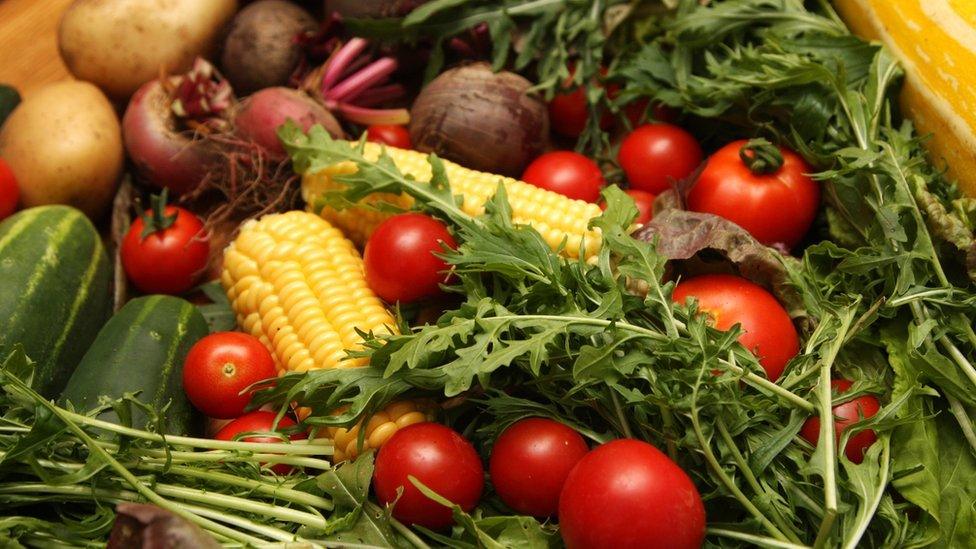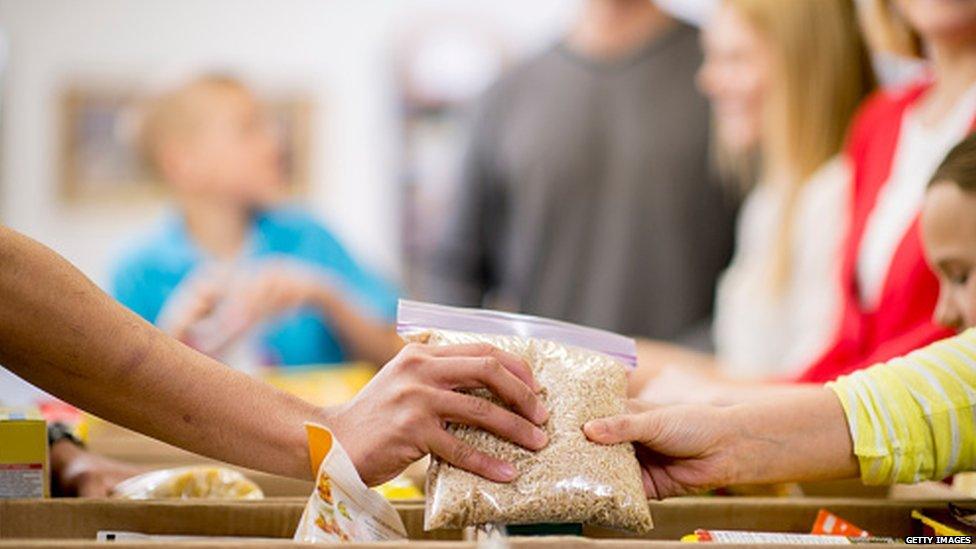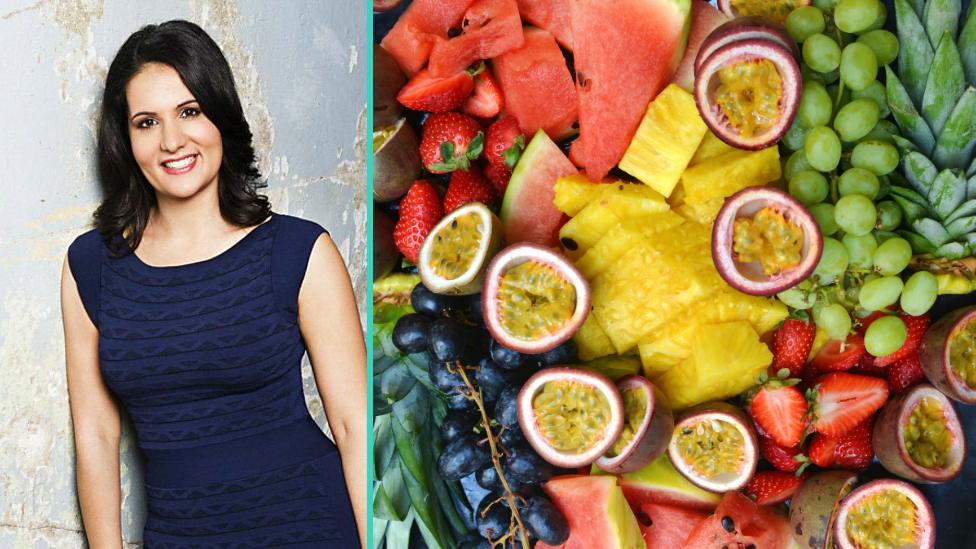The Regenerators: How can we waste less food?
- Published
- comments
Regenerators: How to reduce your food carbon footprint
From veggies to sweet treats, food is a HUGE part of our daily lives!
And the impact it has on our environment is huge too.
Food waste accounts for a massive percentage of greenhouse gas emissions and the food we eat accounts for a quarter of our individual carbon footprints.
Amy from BBC Bitesize's The Regenerators, shares top tips on how to eat well and reduce the environmental impact of food production on the planet at the same time.

Plant-based meals
UN experts say that plant-based foods, which are foods that don't use animal products, can help reduce greenhouse gases, preserve water and help fight climate change. Some people call this way of eating 'veganism'.
Some plant-based foods tend to have lower carbon and water footprints than animal products.
Trying one new plant-based recipe or making one meal a day plant-based are two simple ways that can make a difference.

Amy, from BBC Bitesize's The Regenerators, aims to give you tips and inspiration on how to be more sustainable!
Try growing your own food
Growing your own veggies can be an environmentally friendly hobby.
From carrots to runner beans, home grown food is plastic free, can help reduce food waste and reduces our carbon footprint.
Amy recommends planting lettuce and says that you don't need to have a huge garden as you can try and grow food in small containers.
"You don't need to know everything to start growing fruit and veg yourself, look up some online videos" or plant some "strawberries or tomatoes on your window sill" in pots, she says.

Plan your meals
About a third of the world's food goes to waste.
Planning your meals and making a shopping list before you go to the supermarket can stop you from buying unnecessary food items.
You can also check your fridge and cupboards for what you already have and add the foods that are missing, including your fave snacks. Yummy!
Saving any leftover foods for the next day can also help reduce food waste and means you can have round two of that tasty dinner. Mmm!
- Published24 March 2015

- Published5 January 2021

- Published23 March 2015

